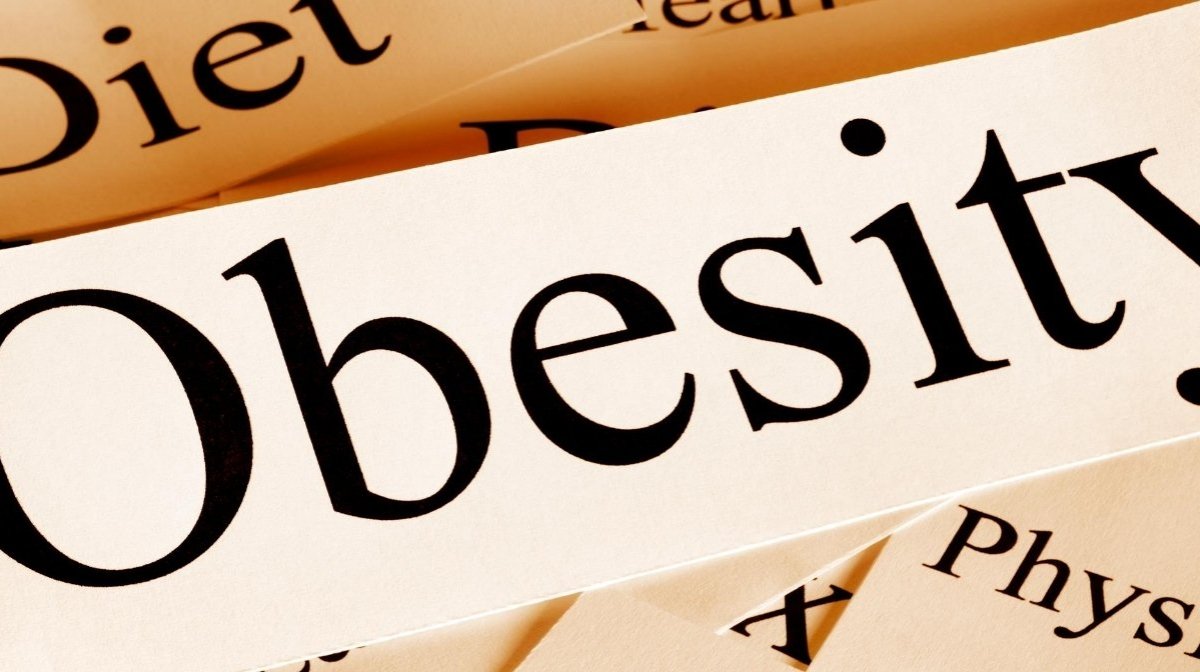
The World Health Organisation (WHO) defines obesity as abnormal or excessive fat accumulation that present a risk to health.(1) It is calculated by considering your weight and height to calculate body-mass index (BMI).
What does 'obese' mean?
BMI is a measure used to work out if your weight is healthy. A BMI below 18.5 kg/m2 is considered underweight, 19-24 kg/m2 healthy, 25-29 kg/m2 overweight and above 30 obesity.(2)
There are three different grades of obesity. Class 1 (low-risk) is a BMI 30-34.9, Class 2 (moderate-risk) 35-39.9 and Class 3 (high-risk) greater than 40.0.2 You can use the exante BMI calculator to find out what your BMI is.
BMI sometimes is not accurate because it doesn’t differentiate between lean body muscle or body fat.(2) A better measure of excess fat is waist circumference, that can be used as an additional measure in people who are overweight or moderately obese. Women with a waist circumference of 80cm or more and men with a waist circumference of 94cm or more are more likely to develop obesity-related health problems.
Is obesity a disease?
A disease is defined as a disorder of structure or function, especially one that produces specific symptoms and is not simply a direct result of physical injury.(3) WHO have considered Obesity to be a chronic disease since 1936 due to the accumulation of body fat reaching a point where it had impacted on health.(4)
What causes obesity?
Obesity is a condition caused by a range of multiple factors including consuming excessive amounts of calories, lack of physical activity, genetics, and medical reasons.(4,5)
Calories
The general recommendation is for women to consume 2000 calories daily, and for men to consume 2500 calories daily to maintain a healthy weight. Overtime, poor diet, and lifestyle choices can lead to Obesity.
A few examples include:
1. Consuming large amounts of processed or fast foods high in fat and sugar
2. Drinking too much alcohol
3. Eating large portions of food
4. Comfort eating due to low self-esteem or feeling depressed
Lack of physical activity
Nowadays most jobs are office based resulting in people having more sedentary lifestyles. If you are not keeping active enough, you do not use the energy provided by food you eat and the extra energy you consume is stored by the body as fat.
Genetics
Rare genetic conditions such as Prader-Wili syndrome may lead to obesity but most of the time, obesity results from complex interactions between environmental factors and a few multiple genes. This is a growing area of research and still requires more understanding.(4,5)
Medical Reasons
A few underlying medical can contribute to weight gain. For example, an underactive thyroid also known as hypothyroidism where your body does not produce enough hormones. Another condition includes Cushing’s syndrome, a rare disorder causing the over-production of steroid hormones.(4,5)
If these conditions are properly diagnosed and treated, they pose less of a barrier to weight-loss. Certain medications also including antidepressants and corticosteroids can contribute to weight gain.(4,5)
How many people are obese in the UK?
More than 60% of the UK population are classed as being either overweight or obese in the UK. Approximately 35 million people in the UK are obese or overweight.(6,7,8,9)
What is the difference between being overweight, obese, and morbidly obese?
Being overweight is having a weight above the considered normal or desirable range. The main differences between being obese and morbidly obese including having a BMI greater than 40, being 45kg overweight or anyone with a BMI of 35 and more experiencing healthy related conditions including high blood pressure or diabetes.(1,2)
What can obesity cause?
Obesity can cause a range of complications conditions including heart disease, type 2 diabetes, certain cancers, digestive problems, gynaecological and sexual problems, sleep apnoea and osteoarthritis.(10)
How to prevent obesity?
Obesity can be prevented by leading a healthy lifestyle, this includes keeping active enough and having a balanced diet.(11)
The Department of Health recommends doing at least 150 minutes, which is the equivalent of 2.5 hours, of moderate-intensity aerobic activity such as cycling or fast walking, every week.(12)
The Eatwell Guide is a good place to start when you are looking to educate yourself more around having a healthy balanced diet.(13) You want to focus on having a good variety of wholegrain carbohydrates, lean sources of protein and plenty of fruits and vegetables.
If you are either overweight or obese, it would be a good idea to focus on losing some weight.(14) You first want to focus on creating a calorie deficit, which means consuming less calories than what you burn in a day.
For some people, reducing portions overall can be enough to lose a few pounds but for others, you may need something a little more weight-loss intensive. This includes embarking on a short-term dietary intervention of choice including following a partial or total diet replacement diet.(11)
How can meal replacement help obesity?
Meal replacements can be a short-term, useful way to lose weight especially if you lead a busy lifestyle.(15,16) You can focus on educating yourself on what a healthy balanced diet is whilst losing weight.
Exante have a range of plans for you to choose from, depending on what you’re looking to aim for. I would suggest started with the Exante 1200 plan and monitoring your weight thereafter. If you are not managing to lose the recommended 0.5-1.0 kg per week weight-goal, then you could try exante 800 plan for a few weeks and see how you get on.
Once you reach your desired weight-goal, which can be calculated using the exante BMI calculator, you can then transfer over to a healthy balanced lifestyle. If you enjoyed using the exante meal replacements, you can still purchase some of them. The porridge pots are especially handy if you are on the go!
Meal replacements are not a fad, if they are used correctly, they can be effective in achieving your desired weight-loss goal and can also be used as part of a healthy balanced lifestyle.
References
1. Who.int. 2020. WHO | Obesity. [online] Available at: <https://www.who.int/topics/obesity/en/> [Accessed 16 August 2020].
2. Euro.who.int. 2020. Body Mass Index – BMI. [online] Available at: <https://www.euro.who.int/en/health-topics/disease-prevention/nutrition/a-healthy-lifestyle/body-mass-index-bmi> [Accessed 16 August 2020].
3. Oxfordlearnersdictionaries.com. 2020. Disease Noun – Definition, Pictures, Pronunciation And Usage Notes | Oxford Advanced American Dictionary At Oxfordlearnersdictionaries.Com. [online] Available at: <https://www.oxfordlearnersdictionaries.com/definition/american_english/disease> [Accessed 16 August 2020].
4. Wilding, J., Mooney, V. and Pile, R., 2019. Should obesity be recognised as a disease?. BMJ, p.l4258.
5. Ajmc.s3.amazonaws.com. 2016. Obesity: Definition, Comorbidities, Causes And Burden. [online] Available at: <http://ajmc.s3.amazonaws.com/_media/_pdf/ACE0042_05_2016_Obesity_Article01.pdf> [Accessed 16 August 2020]. 6. NHS Digital. Health Survey for England. Available from https://digital.nhs.uk/data-and-information/publications/statistical/health-survey-for-england(link is external). Accessed August 2020.
7. Scottish Government. Scottish Health Survey. Available from https://www.gov.scot/Topics/Statistics/Browse/Health/scottish-health-survey(link is external). Accessed August 2020.
8. Welsh Government. National Survey for Wales. Available from https://gweddill.gov.wales/statistics-and-research/national-survey/?lang=en(link is external). Accessed August 2020.
9. Northern Ireland Department of Health. Health survey Northern Ireland. Available from https://www.health-ni.gov.uk/topics/doh-statistics-and-research/health-survey-northern-ireland(link is external). Accessed August 2020.
10. Ansari, S., Haboubi, H. and Haboubi, N., 2020. Adult obesity complications: challenges and clinical impact. Therapeutic Advances in Endocrinology and Metabolism, 11, p.204201882093495.
11. National Institute for Health and Care Excellence, 2015. Obesity Prevention Clinical Guideline [CG43]. [online] NICE. Available at: <https://www.nice.org.uk/guidance/cg43/chapter/1-Guidance> [Accessed 16 August 2020].
12. GOV.UK. 2019. Physical Activity Guidelines. [online] Available at: <https://www.gov.uk/government/collections/physical-activity-guidelines> [Accessed 16 August 2020].
13. Public Health England, 2018. The Eatwell Guide. [online] London: Crown. Available at: <https://assets.publishing.service.gov.uk/government/uploads/system/uploads/attachment_data/file/742750/Eatwell_Guide_booklet_2018v4.pdf> [Accessed 17 August 2020].
14. Ma, C., Avenell, A., Bolland, M., Hudson, J., Stewart, F., Robertson, C., Sharma, P., Fraser, C. and MacLennan, G., 2017. Effects of weight loss interventions for adults who are obese on mortality, cardiovascular disease, and cancer: systematic review and meta-analysis. BMJ, p.j4849.
15. National Institute for Health and Care Excellence, 2014. Obesity: Identification, Assessment And Management. Clinical guideline [CG189]. [online] NICE. Available at: <https://www.nice.org.uk/guidance/cg189/chapter/1-Recommendations> [Accessed 16 August 2020].
16. Xin, Y., Davies, A., Briggs, A., McCombie, L., Messow, C., Grieve, E., Leslie, W., Taylor, R. and Lean, M., 2020. Type 2 diabetes remission: 2 year within-trial and lifetime-horizon cost-effectiveness of the Diabetes Remission Clinical Trial (DiRECT)/Counterweight-Plus weight management programme. Diabetologia,.









